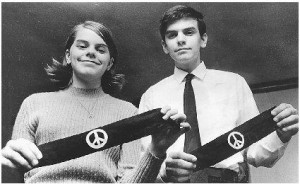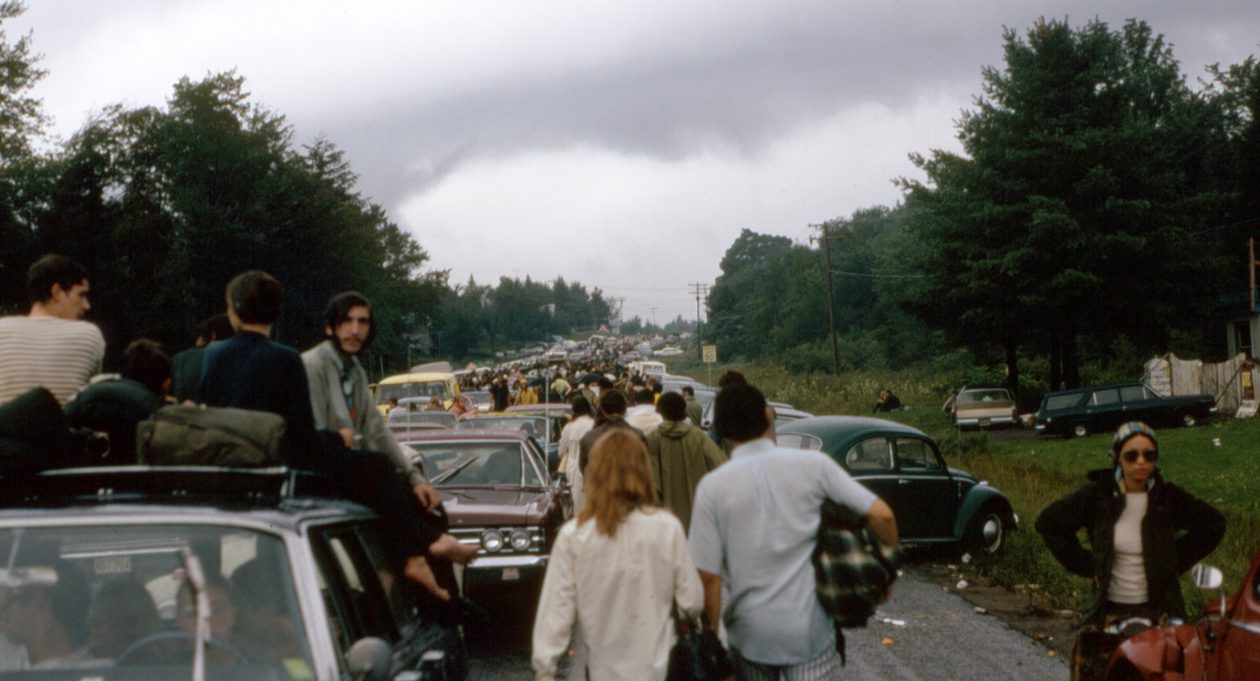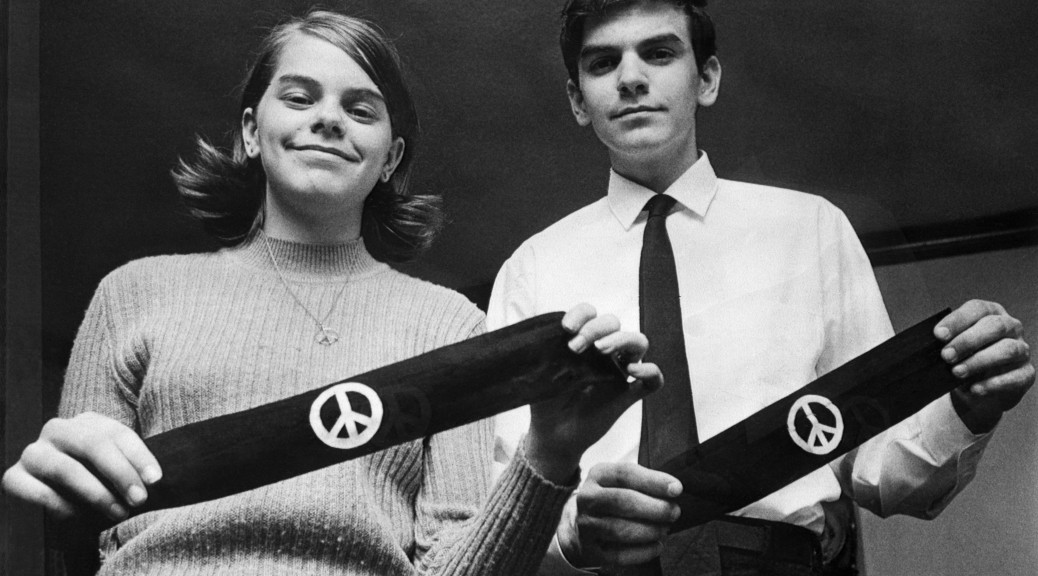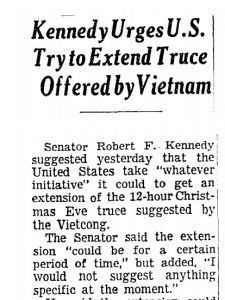Tinker v Des Moines 1969
1969. It was a time of empowerment. Blacks. Women. College students. The disabled. LGBTQ. Migrant laborers. Native Americans. Immigrants.
And high school students.
Tinker v Des Moines 1969
December 16, 1965
On December 11, 1965, high school student Christopher Eckhardt held a meeting with a group of students at his Des Moines, Iowa home. The group decided to wear black armbands in school on December 16 as both a Vietnam War protest and in support of Robert F Kennedy’s proposed extension of a truce the Viet Cong proposed truce on Christmas Eve. The student would keep wearing the bands until January 1, 1966.
Principals of the Des Moines schools learned of the plan and on December 14, 1965, adopted a policy that required any student wearing an armband in school to remove it. Any student who refused would be suspended until they agreed to comply.
On December 16, 1965, Chrisopher Eckhardt (16), Mary Beth Tinker (13) and her siblings, Hope (11) and Paul (8) wore black armbands. Christopher and Mary were suspended. The two younger students were not. Mary Beth’s brother, John Tinker (15), was suspended for doing the same on the following day.

Tinker v Des Moines 1969
Echhardt explains why
Christopher Eckhardt: I wore the black armband over a camel-colored jacket. The captain of the football team attempted to rip it off. I turned myself in to the principal’s office where the vice principal asked if ‘I wanted a busted nose.’ He said seniors wouldn’t like the armband. Tears welled up in my eyes because I was afraid of violence. He called my mom to get her to ask me to take the armband off. Then he called a school counselor in. The counselor asked if I wanted to go to college, and said that colleges didn’t accept protesters. She said I would probably need to look for a new high school if I didn’t take the armband off.
Tinker v Des Moines 1969
The beginning
The Iowa Civil Liberties Union approached the families and the ACLU agreed to help the family with a lawsuit. The Tinker and Eckhardts filed suit in U.S. District Court which upheld the board’s decision.
Tinker v Des Moines
Continues
A tie vote in the U.S. Court of Appeals for the 8th Circuit meant that the U.S. District Court’s decision continued to stand.
Continues still…
The Tinkers and Eckhardts to appealed to the Supreme Court. The case was argued before the court on November 12, 1968.
Decided
On February 24, 1969 the US Supreme Court sided with the Tinkers in Tinker v. Des Moines. Justice Abe Fortas delivered the opinion of the 7-2 majority. The Supreme Court held that the armbands represented pure speech that is entirely separate from the actions or conduct of those participating in it. The Court also held that the students did not lose their First Amendment rights to freedom of speech when they stepped onto school property. In order to justify the suppression of speech, the school officials must be able to prove that the conduct in question would “materially and substantially interfere” with the operation of the school. In this case, the school district’s actions evidently stemmed from a fear of possible disruption rather than any actual interference. (Tinker article) [Oyez article]

Tinker v Des Moines 1969
John & Yoko
Appropriately, on December 16, 1969, John Lennon and Yoko Ono put up eleven billboards in major cities worldwide with the slogan: War Is Over!

Tinker v Des Moines 1969
John F. Tinker Foundation
Today, the mission of the John F. Tinker Foundation is to promote awareness and understanding of the First Amendment rights of students and teachers, and to facilitate civil conversation about controversial social issues.
Here is a link to a 2019 Smithsonian Magazine article entitled The Young Anti-War Activists Who Fought for Free Speech at School


